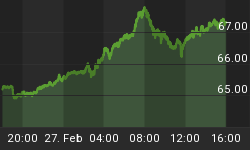In February, the Trump administration announced the heaviest sanctions ever against North Korea in an attempt to rougue nation from further developing its nuclear program.
These new sanctions targeted more than 50 maritime transport companies in North Korea, China and Taiwan and aimed to seal off a loophole that involved illicit transfers of refined coal and fuel by ships in the high seas that had allowed the country to skirt earlier sanctions.
Now, a new set of companies will face the wrath of the United States after breaching the rules of engagement and doing business with North Korea.
The U.S. Treasury has sanctioned China’s Dalian Sun Moon Star International Logistics Trading Co. as well as Singapore-based SINSMS Pte. Ltd for exporting cigarettes and alcohol worth more than $1 billion to North Korea.
The department has also sanctioned Russia’s Profinet Pte Ltd for providing port services to some of North Korea’s banned ships on at least six occasions. Profinet’s director general, Vasili Aleksandrovich Kolchanov, has also been indicted after being found guilty of interacting directly with North Korean reps in Russia.
Beijing and Moscow Protest
By going after the two countries, the United States is gradually edging close to imposing economic blockades on the North. and it wouldn't come as a surprise if the U.S. petitions them to allow inspection of suspicious vessels. Related: Brexit Woes Weigh On The British Pound
For their part, both China and Russia have not been accepting of the latest sanctions, and the situation is poised to escalate into something bigger.
China’s Foreign Ministry has issued a statement saying the country has always adhered to UN Security Council resolutions on North Korea. The statement was quite terse and left open the possibility of retaliatory measures:
“…China’s position on opposing countries enacting unilateral sanctions on other countries and ‘long-armed jurisdiction’ is consistent and clear,” it added, without elaborating.
Just in case this is getting a bit convoluted for you, the United Nations imposed sanctions on North Korea more than a decade ago, including bans on exports of military supplies, iron ore, coal, seafood and textiles. The U.S. then followed up with sanctions of its own after president George W. Bush declared the country a security threat in 2008. In 2017, president Trump imposed a full trade and financial embargo that included penalties for companies, non-banks and people who do business with N. Korea.
So why is China so important in this maelstrom? Because it’s by far North Korea’s biggest trading partner, accounting for 90 percent of the country’s trade volumes. In 2017, Trump pressured China’s leaders to accept sanctions on North Korea’s iron ore, seafood and textile exports. The effects have been quite dramatic--trade between the two countries declined a whopping 60 percent during the first quarter. As you might imagine, neither country is too pleased with the current state of affairs.
Related: Lira Bounces Back After Qatar Bailout Pledge
Meanwhile, Russia has been even more straightforward with its intentions. Russian Deputy Foreign Minister Sergei Ryabkov has declared that the U.S. has acted without evidence and added that the Russian leadership was working on retaliatory measures and would decide whether to hit back.
Are the Sanctions Working?
Enforcing sanctions is a constant battle, especially when you are dealing with a slippery customer like North Korea. But are there any signs that the sanctions are having the desired effect? So far, the evidence is mixed.
After the latest round of sanctions, China’s official Xinhua news agency has said that Washington’s ‘maximum pressure’ approach on Pyongyang ignores the situation on the ground in the Korean Peninsula, implying that the U.S. is going for overkill.
North Korea itself has declared that the sanctions were causing a "colossal amount of damage" to the economic well-being of its people. In April, the New York Times reported that North Korean factories were closing down for lack of raw materials.
In sharp contrast, visitors to the North have so far not seen much evidence of economic distress in the country with prices of staples like rice remaining relatively stable. In other indications of continuing business between North Korea and China, regular flights between Pyongyang and Beijing resumed after a six-month hiatus while new home prices on the Dandong border, usually considered a reliable gauge of how well sanctions are working, climbed two percent in April.
By Alex Kimani for Safehaven.com
More Top Reads From Safehaven.com
















